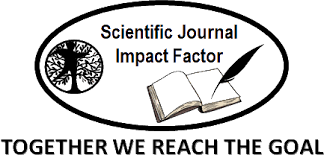Transgression and Dissidence in Rachid Mimouni’s ‘Le Fleuve Détourné’
Abstract
The paper appropriates the African Tradition combined with Ian Miller's theoretical concept of "Disgust" in order to investigate into the dissident language of Rachid Mimouni's Le fleuve détourné (1982). The novel was written at a time when restrictions and censorship were prominent and the writer could neither dare to indict directly the political officials nor could he risk a direct attack on the regime for the repressive conditions under which the population was engulfed. He could, however, imply such responsibility through the development of trickster paradigms to debunk and call into question the official oppressive authority. Subtlety, deviation, signifying, and indirection becomes his best tools. In so doing, the writer allows his characters to denounce the social and political turmoil by concerning himself with the description of the burning problems. The present paper reads Le fleuve détourné to show how the author resists political oppression by using the trickster's cunning, subversive, and deviating discourse, which serve to convey the horrors of corruption and misrule. As an "Intellectual Trickster" and by means of serious laughter, irony, and sarcasm, the novel reflects the incompetence, sluggishness, and absolute irresponsibility of the political officials which led to the doom of the independence era ever before it came into being and devalued its much-anticipated fruits. The literary strategies or 'devices' that Mimouni draws from his local culture will be combined with Miller's notion of "disgust", and then will be applied to the novel's characters.
Keywords: Discursive Strategies: Transgression, Deviation, disgust, and Revision.
Downloads
Published
How to Cite
Issue
Section
License
Declaration/Copyright transfer:
1. In consideration of the undertaking set out in paragraph 2, and upon acceptance by ANGLISTICUM for publication of the manuscript in the Journal, I/We hereby assign and transfer publication rights to ANGLISTICUM, whereas I/We retain the copyright for the manuscript. This assignment provides ANGLISTICUM the sole right and responsibility to publish the manuscript in its printed and online version, and/or in other media formats.
2. In consideration of this assignment, ANGLISTICUM hereby undertakes to prepare and publish the manuscript in the Journal, subject only to its right to refuse publication if there is a breach of the Author’s warranty in paragraph 4 or if there are other reasonable grounds.
3. Editors and the editorial board of ANGLISTICUM are empowered to make such editorial changes as may be necessary to make the Manuscript suitable for publication.
4. I/We hereby acknowledge that: (a) The manuscript submitted is an original work and that I/We participated in the work substantively and thus I/We hereby are prepared to take public responsibility for the work; (b) I/We hereby have seen and approved the manuscript as submitted and that the manuscript has not either been published, submitted or considered for publication elsewhere; (c) The text, illustration, and any other materials included in the manuscript do not infringe upon any existing copyright or other rights of anyone.
5. I/We hereby indemnify ANGLISTICUM and the respective Editors of the Journal as mentioned in paragraph 3, and hold them harmless from any loss, expense or damage occasioned by a claim or suit by a third party for copyright infringement, or any suit arising out of any breach of the foregoing warranties as a result of publication of the manuscript.













